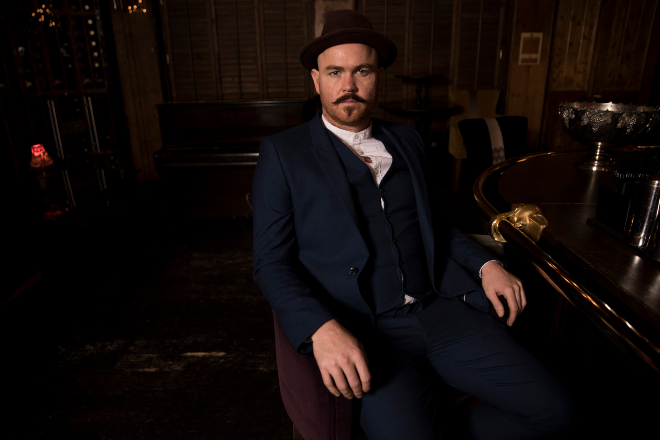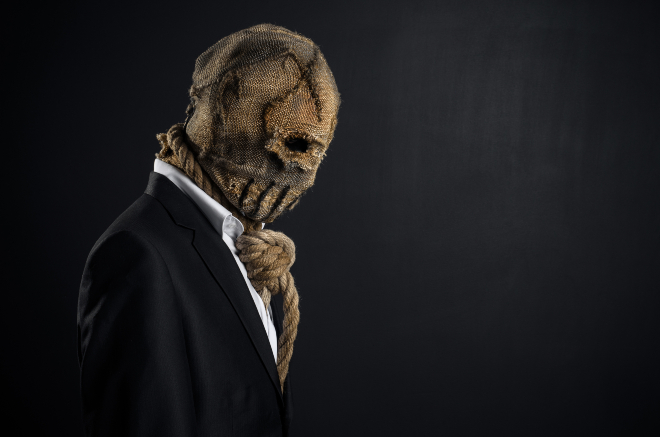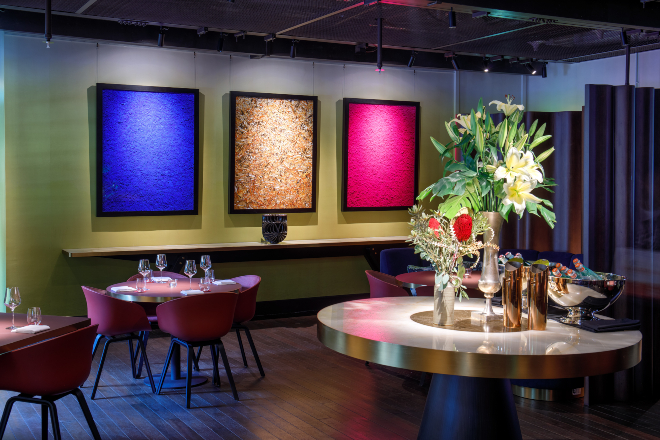You arrive at Tai Kwun for dinner and take your place in the humble intimacy of Aaharn, beset by dim lights and the smell of herbs wafting through the air. You spread your napkin across your knee, as proper table manners do ask for, and smile at your companion as you wait for the meal to begin.
“Exciting, isn’t it?” you might quip. For a moment, you jostle with the idea of discussing how you think the night may unfurl. Why, you ask? Because you are nervous—in an excited way, of course—but your excitement is tainted with a bit of fear: fear of the unknown of what the night may bring and for what you voluntarily signed yourself up for. “Oh, it’s just a piece of theatre, silly!” Your companion may giggle at the thought of being scared of a play, but you know this isn’t just any sort of play.
“Cameras ready! Where’s camera one? Yes, I can lock on camera two. Make sure you get a nice shot of our guests!”
You turn around in confusion; who is that man making all that noise? They haven’t even started serving the food yet! You find yourself staring at a peculiar man in his sparkling blazer with a camera aimed at him, wondering what is happening. Suddenly, you lock eyes with him as he smirks and announces, “We’re going live in three… two… one!” And so it begins. Welcome to Secret Theatre, a theatrical performance unlike any other.
[pro_ad_display_adzone id="73367"]

What is immersive theatre?
If immersive theatre were to be described in one phrase, it would be ‘call-and-response’. It is derived from an ancient musical form, where a leader (be it person or instrument) calls out a command or asks a question and the audience or opposing instrument replies with an affirmation or a contradiction. This is different from a traditional theatre format, where you perch on your designated seat and get ready for the show. “There is no fourth wall” in immersive theatre, as Secret Theatre director and actor Richard Crawford succinctly puts it. In fact, there are virtually no walls, since there is no set stage either!

What is Secret Theatre?
Back for their fourth run in Hong Kong, Secret Theatre, led by director and actor Richard Crawford, takes over the sprawling architecture of Tai Kwun, a venue that they had set their hearts on for two years. The premise of the show is simple: the cast invites the audience to act the part in the trial of a murder suspect. Such a brand of immersive theatre is a relatively new art form that Hong Kong may not be as familiar yet.
Taking up a whole building in Tai Kwun, the show’s brand-new crime plot aligns with the revitalised cultural heritage site and former prison. Immersive theatre may not be a prominent feature in Hong Kong’s art scene, but it sure is on the rise. For some audience members, there is initial discomfort at the idea of breaking out of the traditional definition of theatre, as actor Hamish Campbell states, “People may seem hesitant at first, but once you hook them in and the tension is there, they get so immersed and so on your side.”
Audience members are encouraged to take the leap to dive into the play and become a part of the show, just as the actors themselves have “taken the leap” into immersive theatre. As Shakespeares puts it best, “All the world’s a stage, and all the men and women merely players.” For their fourth show, Secret Theatre invites the audience to take part in a murder trial. “There are no innocent bystanders” suddenly rings true as the audience is tasked with deciding the fate of the man on trial. Or really, it could be your own humanity and conscience on trial. Whether it is going to be akin to How to Get Away with Murder or lean on the side of Making Of A Murderer, the outcome of the show is up to you and where you think justice stands.

High stakes
It’s not the first time that Secret Theatre has visited Hong Kong, and with each visit, Secret Theatre has to up their stakes. Crawford emphasises that “we’ve done the physical things, [but] now we want to do a mental challenge. [They are] polar opposites to the shows we’ve done before.” In order to make audiences really buy into the story they’re selling, the cast works extra hard on their backstory, with actors taking turns questioning each other as well as having trial shows to test out audience reactions. This way, the cast can get used to reading the audience’s reactions and, in turn, audience members will feel more comfortable approaching actors and coming to grips with the fact that there are no lines separating the audience and the cast.
“There are some times when they don’t realise that we are actors!” Campbell points out. That’s because, as an actor, you are always ‘on’. “You never know what an audience member will blurt out to you. You got to be present, be very reactive. The stakes are just so high,” explains actress Veenesh Dubois. The stakes are indeed high; depending on the audience’s choice, they decide the fate of a man’s life.

Vote #innocent or #guilty on #TrialTV
Laugh along, feel the fear, express the fear, and live the fear during a Secret Theatre show. Co-director Candice Moore also points out that the great thing about immersive theatre is that the “audience can choose how involved or un-involved they want to be.” Feel like combing through the crime scenes for more clues and running through theories in your head? Or would you prefer your fellow audience members to do the heavy lifting for you? As Crawford himself says, “[The show] keeps you on your toes,” for actors and audiences alike. Remember to tag #innocent, #guilty, and #TrialTV!
Secret Theatre is playing in Hong Kong until November 10 at a secret location in Tai Kwun. Click
here for more information.
Read more! Dive into
Hong Kong’s local comedy scene or explore the rest of our
Culture section.
[button color="#008bd2" size="medium" link="https://localiiz.us4.list-manage.com/subscribe/post?u=c2964a434922598f5d8ee53ff&id=07d327a2e8" icon="" target="true"]Subscribe to receive our weekly newsletter[/button]



